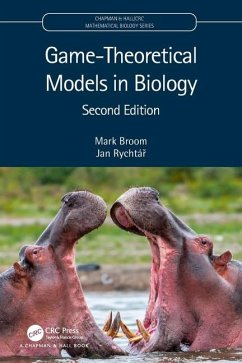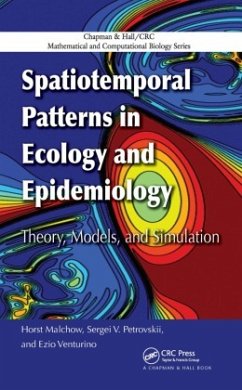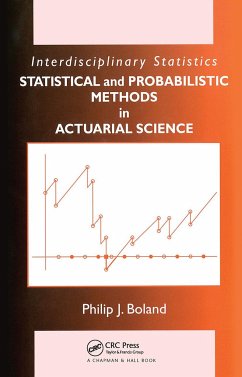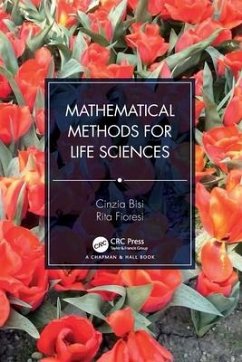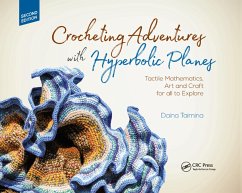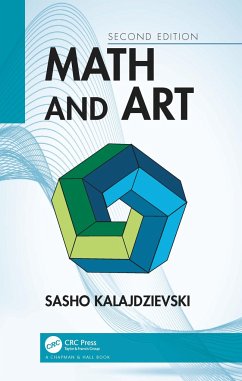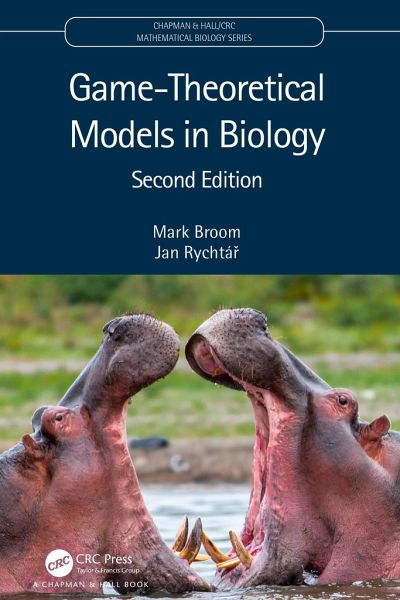
Game-Theoretical Models in Biology

PAYBACK Punkte
49 °P sammeln!
Covering the major topics of evolutionary game theory, Game-Theoretical Models in Biology, Second Edition presents both abstract and practical mathematical models of real biological situations. It discusses the static aspects of game theory in a mathematically rigorous way that is appealing to mathematicians. In addition, the authors explore many applications of game theory to biology, making the text useful to biologists as well.The book describes a wide range of topics in evolutionary games, including matrix games, replicator dynamics, the hawk-dove game, and the prisoner's dilemma. It cover...
Covering the major topics of evolutionary game theory, Game-Theoretical Models in Biology, Second Edition presents both abstract and practical mathematical models of real biological situations. It discusses the static aspects of game theory in a mathematically rigorous way that is appealing to mathematicians. In addition, the authors explore many applications of game theory to biology, making the text useful to biologists as well.
The book describes a wide range of topics in evolutionary games, including matrix games, replicator dynamics, the hawk-dove game, and the prisoner's dilemma. It covers the evolutionarily stable strategy, a key concept in biological games, and offers in-depth details of the mathematical models. Most chapters illustrate how to use Python to solve various games.
Important biological phenomena, such as the sex ratio of so many species being close to a half, the evolution of cooperative behaviour, and the existence of adornments (for example, the peacock's tail), have been explained using ideas underpinned by game theoretical modelling. Suitable for readers studying and working at the interface of mathematics and the life sciences, this book shows how evolutionary game theory is used in the modelling of these diverse biological phenomena.
In this thoroughly revised new edition, the authors have added three new chapters on the evolution of structured populations, biological signalling games, and a topical new chapter on evolutionary models of cancer. There are also new sections on games with time constraints that convert simple games to potentially complex nonlinear ones; new models on extortion strategies for the Iterated Prisoner's Dilemma and on social dilemmas; and on evolutionary models of vaccination, a timely section given the current Covid pandemic.
Features
Presents a wide range of biological applications of game theory. Suitable for researchers and professionals in mathematical biology and the life sciences, and as a text for postgraduate courses in mathematical biology. Provides numerous examples, exercises, and Python code.
The book describes a wide range of topics in evolutionary games, including matrix games, replicator dynamics, the hawk-dove game, and the prisoner's dilemma. It covers the evolutionarily stable strategy, a key concept in biological games, and offers in-depth details of the mathematical models. Most chapters illustrate how to use Python to solve various games.
Important biological phenomena, such as the sex ratio of so many species being close to a half, the evolution of cooperative behaviour, and the existence of adornments (for example, the peacock's tail), have been explained using ideas underpinned by game theoretical modelling. Suitable for readers studying and working at the interface of mathematics and the life sciences, this book shows how evolutionary game theory is used in the modelling of these diverse biological phenomena.
In this thoroughly revised new edition, the authors have added three new chapters on the evolution of structured populations, biological signalling games, and a topical new chapter on evolutionary models of cancer. There are also new sections on games with time constraints that convert simple games to potentially complex nonlinear ones; new models on extortion strategies for the Iterated Prisoner's Dilemma and on social dilemmas; and on evolutionary models of vaccination, a timely section given the current Covid pandemic.
Features
Presents a wide range of biological applications of game theory. Suitable for researchers and professionals in mathematical biology and the life sciences, and as a text for postgraduate courses in mathematical biology. Provides numerous examples, exercises, and Python code.





